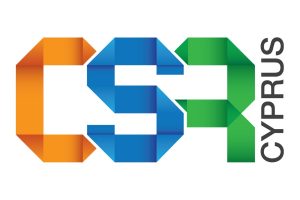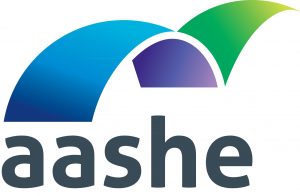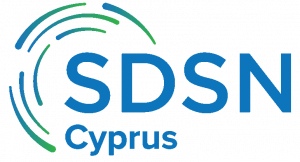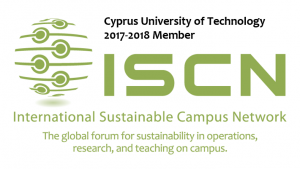PARTNERSHIP FOR THE GOALS
2023
R&D activities (funded projects)
- Title: European Union’s REKonstructed content in 3D
- Acronym: EUreka3D
- Funding framework: DIGITAL
- Abstract: This program collaborates with UNESCO and Professor Ioannides hold the UNESCO Chair on Digital Cultural Heritage at the Cyprus University of Technology. UNESCO’s mission is to contribute to the building of a culture of peace, the eradication of poverty, sustainable development and intercultural dialogue through education, the sciences, culture, communication and information. Moreover, it takes into account and contributes to the gender equality, Climate action and life below water.
- Title: Co-curating in the Phygital Museum and the creation of alternative narratives and transcultural “voices” towards developing inclusive and sustainable museums
- Acronym: Erasmus+ ExhiBIT
- Funding framework: ERASMUS+
- Abstract: The Erasmus+ Project Co-curating in the Phygital Museum emphasizes co-curatorship through “phygital” strategies, blending physical and digital experiences to foster broader visitor engagement in multicultural, post-pandemic museum spaces. Aligning with the EU’s Digital Education Action Plan (2021–2027), the ExhiBIT project supports Creative and Cultural Industries (CCI) professionals in enhancing digital skills and pedagogical approaches to promote social inclusivity. By advancing co-curatorship practices, it facilitates dialogue with underrepresented societal groups to collaboratively shape inclusive and participatory museum environments.
- Title: Toolkit of Care
- Acronym: TOC
- Funding framework: COST
- Abstract: The Covid-19 pandemic has intensified existing inequalities, severely affecting the precarious cultural sector, particularly in Inclusiveness Target and Near Neighbour countries with minimal government support for creative practitioners and NGOs. This crisis not only disrupts local cultural production but also restricts global access to their innovations. In response, an interdisciplinary group of creative practitioners, academics, researchers, and arts organizations, including CYENS (https://cyens.org.cy/), has formed a “critical network of care.” Their goal is to share expertise and develop care methodologies, resulting in a comprehensive TOOLKIT OF CARE that includes articles, prototypes, audiovisual documentation, technical manuals, and theoretical analyses. This toolkit will provide a model for effectively sharing knowledge across diverse regions and social groups, aligning with SDGs 5, 8, 10, 11, and 17.
Strategic Actions
Annual Award for Integrity and Social Contribution
Since 2020, the annual Integrity and Social Contribution Award has been established to highlight the importance of youth participation during student life. The €1,000 award, funded personally by the Rector of the Cyprus University of Technology, recognizes undergraduate, postgraduate, and doctoral students who stand out for their initiatives, integrity, and values. These students serve as role models in community service, with a direct impact on society and vulnerable groups, strengthening social cohesion and improving citizens’ quality of life. The award also considers active involvement in promoting the United Nations’ 17 SDGs. (https://www.cut.ac.cy/digitalAssets/569/569810_100CUT_2020-2023_APOLOGISMOS_FINAL_ALL.pdf pg. 21).
CUT’s Partnership in the EUT+ Alliance: Empowering Technology with European Values”
CUT is a partner in the EUT+ alliance, which brings together Europe, Universities, and technology. Our shared vision is centered around the principle “Think Human First – European values empowering technology,” reflecting our commitment to integrating human values with technological advancements (https://www.univ-tech.eu/mission-statement-1).
Research and Innovation in the Eut+ Alliance
As a partner in the EUT+ alliance, CUT is actively involved in a range of research and innovation initiatives (https://www.univ-tech.eu/the-research-schools) aimed at addressing global challenges. The alliance of nine universities has created, or is in the process of developing, several key projects:
ESSLab+ (Sustainability Science Lab), which focuses on producing knowledge related to sustainability, influencing society in the context of ecological urgency, and exploring more sustainable research practices, while reflecting on the role of scientists in the Anthropocene.
The EUt+ Graduate School, which will enhance students’ competencies, improve their chances of successful completion, and foster interdisciplinary collaboration by integrating perspectives and insights from diverse fields.
The Institute of Nanomaterials and Nanotechnologies, where research on advanced nanomaterials and nanotechnologies is being conducted, along with EUTINN, which is dedicated to the development of innovations in these areas.
ECT Lab+, which aims to promote a transdisciplinary approach to technology by integrating philosophy, social sciences, art and humanities, and engineering sciences into the research process.
ELaRA (European Laboratory for Pedagogical Action – Research and Student-Centred Learning), focusing on student-centered learning and pedagogical research.
EUt+ EXTRAS, which strives to create autonomous knowledge-generating teams across disciplines, institutions, and types of activities, working towards a common roadmap for research and innovation at the EUt+ level, with a vision for 2030.
The Learning Development Network
The Learning Development Network at the Cyprus University of Technology (https://ldn.cut.ac.cy/) exemplifies SDG 17 by fostering partnerships, resource-sharing, and teamwork to enhance educational experiences. Its collaborative structure integrates Academic, Student Learning Support, and Educational Technology Groups, working collectively to enrich teaching and learning across the university.
The Network has organized over 50 seminars and workshops, attracting more than 1,000 participants, including academic staff, doctoral students, researchers, and international attendees. Key events include the Distinguished Speaker Series, featuring renowned experts such as Andria Zafirakou (World’s Best Teacher), Roland Tormey (École Polytechnique Fédérale de Lausanne), and Anders Jönsson (Kristianstad University, Sweden), who addressed innovative teaching and assessment practices.
Additionally, initiatives like the “From Zero to PhinisheD” Summer School provide doctoral students with essential skills in communication, sustainability, entrepreneurship, and research. The Network is committed to advancing inclusive teaching and accessibility, organizing targeted seminars and workshops to promote these values within the university community.
By encouraging collaboration and knowledge exchange, the Learning Development Network embodies the spirit of SDG 17, strengthening partnerships to achieve shared educational goals.
Relationships with regional NGOs and government for SDG policy
CUT plays a key role in shaping national policies aligned with the SDGs through partnerships with government departments, municipalities, and NGOs. CUT academics contribute data-driven insights and expert recommendations to influence public policy and promote sustainable development locally and regionally. Through research, innovative solutions, and impact assessments, CUT supports evidence-based decision-making and adaptive strategies for sustainable progress.
CUT participates in national strategy committees, scientific advisory groups, and working groups focused on public health priorities, such as maternal and neonatal health, patient satisfaction, and the General Healthcare System. Additionally, the university collaborates with the Municipality of Limassol in the European Mission 100 Climate-Neutral and Smart Cities, and works with the Cyprus UNESCO National Committee through the UNESCO Chair for Digital Cultural Heritage at CUT to digitise and preserve cultural heritage artefacts, sights and intangible material.
Cross sectoral dialogue about SDGs
CUT actively engages in cross-sectoral dialogue on the SDGs through collaborations with government bodies, NGOs, and other organizations. Notable examples include hosting the Cyprus Talks Green conferences, which united policymakers, businesses, and experts to discuss green transition, climate change, and sustainable urban development, focusing on renewable energy and carbon reduction. CUT also participated in the EUMMAS A2S Conference on sustainability, fostering interdisciplinary collaboration aligned with SDG 4 and SDG 17. Additionally, CUT collaborates with the Zero Waste Alliance of Europe, exemplified by a meeting at Limassol Town Hall that promoted SDG 12 through zero-waste strategies. In healthcare, CUT contributes to national committees addressing SDG 3, focusing on breastfeeding, caesarean section reduction, and mental health strategies, advancing sustainable public health solutions.
International collaboration for data gathering for SDGs
Through international collaborations and participation in networks such as EUt+ (European University of Technology– an alliance of nine technological universities across Europe), CUT actively engages in a range of research and innovation initiatives to address global challenges, advance SDG-driven practices, and foster sustainable development.
As part of its involvement in the EUt+ framework, CUT has designed and developed an integrated system to monitor and evaluate the consortium’s research impact on the SDGs. This system features two dedicated dashboards designed to compile all publications and funded projects within the consortium. By systematically categorising these outputs according to the SDGs, the system provides a robust tool for tracking, analysing, and visualising the consortium’s contributions to sustainable development in terms of scientific publications and research grants. This initiative enhances data-driven decision-making and showcases the measurable progress of research efforts in addressing global challenges.
Collaboration for SDG best practice
CUT actively collaborates internationally to develop global best practices for addressing the SDGs. It participates in leading networks and other international organisations like ISCN, AASHE, and EIT Climate-KIC to promote sustainable development. As part of the EUt+ alliance, CUT drives initiatives like ESSLab+ (Sustainability Science Lab), which advances sustainability knowledge and methods, and the EUt+ Green Office, fostering collaboration for an inclusive, equitable, and sustainable university model.
CUT academics also engage in interdisciplinary research with global partners, NGOs, and industry, addressing challenges in health, sustainable infrastructure, circular manufacturing, digital frameworks, and earth observation. Notable projects include COMFORTage, HYPER-AI, CIRCULOOS, EPISTEAM, and initiatives at the Eratosthenes Centre of Excellence. These efforts promote sustainability education and innovation across Europe and beyond.
Collaboration with NGOs for SDGs
CUT collaborates with NGOs to support the United Nations SDGS through initiatives in student volunteering, research, and education. Students participate in environmental and social projects like a beach cleanup for SDG 14 and the FemPower Summer School promoting SDG 5. Research partnerships include the Co-OPERATOR Project, enhancing COVID-19 vaccination strategies (SDG 3), the Forest Therapy Hub, focusing on sustainability and mental well-being, and the CIRCULOOS Project, advancing sustainable production and circular manufacturing (SDG 12). The Althea Project supports mental health for cancer patients and caregivers (SDG 3). Additionally, CUT develops educational resources such as the EMPACT Curriculum and TDP4HE Program, contributing to SDG 4. These efforts demonstrate CUT’s dedication to sustainable development through collaboration and innovation.
Education for SDGs: commitment to meaningful education
CUT demonstrates its commitment to achieving the SDGs through its vision, mission, and values, implemented across all organisational levels. The SDGs Committee and the Learning Development Network (LDN) collaborate to align policies with the SDGs and integrate SDG education into various activities. All students (BSc, MSc, PhD) are exposed to SDG principles through courses and modules. In 2023, CUT launched a new program to fund small internal programs promoting SDG-centered teaching, with eligibility criteria tied to the CUT’s strategic goals and the 17 SDGs. Sustainability education is offered during staff and student inductions and through events. The ESSLab+ of the EUt+ alliance advances SDGs via research and education, embodying the motto “Think human and all living beings first.” CUT’s research labs and the Eratosthenes CoE address SDG priorities through interdisciplinary efforts, offering SDG-focused thesis projects and fostering meaningful education for sustainability.
Education for SDGs: specific courses on sustainability
CUT is committed to integrating the SDGs into its educational programs, with many B.Sc. and M.Sc. curricula embedding SDGs into core learning outcomes. Departments offer dedicated courses integrated across full curricula, such as ABF 200 (Ecology and Conservation of Biodiversity), CIV 215 (Sustainability and Environmental Concepts), and CEN 428 (Environmental Legislation). An interdisciplinary approach is emphasised in CIV 215 (Sustainable Innovation and Entrepreneurship for Technical Applications). Most of these courses are often compulsory for department students and available as electives to others. Moreover, key programs addressing SDGs include the BSc in Agricultural Sciences, Biotechnology and Food Science, BSc in Chemical Engineering, BSc in Civil Engineering, MSc in Public Health, and MSc in Energy Systems. Additionally, through the EUt+ alliance, CUT leads efforts to develop an interdisciplinary, multinational BSc in Sustainable Development.
Education for SDGs in the wider community
CUT offers diverse educational initiatives to engage the wider community, including local residents, alumni, and displaced individuals, raising awareness and promoting SDGs:
- Open University Lecture Series: Enhancing knowledge, skills, and critical thinking on topics like entrepreneurship, AI, and innovation, prioritising remote communities.
- Speed Dating with the 17 SDGs: An interactive workshop fostering connections and collaboration around SDGs.
- Summer School for Doctoral Students: A one-week program on sustainable development, research, and cultural exchange, with projects addressing SDGs.
- e-Fikardou: A digital platform preserving Fikardou’s heritage, promoting cultural education and engagement.
- Patient Triage Training: Boosting healthcare skills for professionals and the community to improve emergency response.
- English Courses for Displaced Ukrainians: Hybrid courses in finance and IT enhancing language skills for displaced individuals.
2020
Γενικά
Το ΤΕΠΑΚ συνεργάζεται με πάρα πολλούς οργανισμούς και Πανεπιστήμια σε θέματα, εθνικής αλλά και παγκόσμιας κλίμακας έχοντας σκοπό την επίτευξη των στόχων μέσα από συνεργασίες.
Οργανισμός Ασφάλισης Υγείας
Μέλος της Επιστημών Υγείας, ο Δρ Νίκος Μίτλεττον, αντιπροσωπεύει τη Κυβέρνηση στο Διοικητικό Συμβούλιο του ΟΑΥ (Οργανισμός Ασφάλισης Υγείας).
EASAC – European Academies Science Advisory Council
Το ΤΕΠΑΚ μέσω του Κοσμήτορα της Σχολής Μηχανικής και Τεχνολογίας, Σωτήρη Καλογήρου συμμετέχει στο Energy Program της EASAC το οποίο παρέχει ανεξάρτητες και πρωτοπόρες επιστημονικές αξιολογήσεις και συμβουλές για την ενέργεια και το κλίμα της Ε.Ε
Climate–KIC
Το Τεχνολογικό Πανεπιστήμιο Κύπρου σε συνεργασία με το Ενεργειακό Γραφείο Κύπρου και την ChrysalisLEAP είναι εταίροι του Climate-KIC Cyprus (Climate-KIC) δεσμεύοντας τους να κάνουν την χώρα κόμβο καινοτομίας. Πηγάζουν πολλές δραστηριότητες μέσα από αυτήν την συνεργασία όπως η προσφορά βοήθειας σε τοπικές startups για την εκμηδένιση των εκπομπών του διοξειδίου του άνθρακα και την εκμάθηση νέων με σκοπό την δράση για το κλίμα. Δύο αντιπροσωπευτικά προγράμματα αυτά είναι το Climathon και το The Journey. Επίσης, υπάρχει και το πρόγραμμα Pioneers into Practice όπου επαγγελματίες από διάφορα επαγγέλματα αναλαμβάνουν να φέρουν εις πέρας ενέργειες ή/και έργα περιβαλλοντικών θεμάτων.
Μερικά προγράμματα στα οποία το ΤΕΠΑΚ συμμετέχει και συμβάλλει στο στόχο αυτό φαίνονται πιο κάτω.
Babby Buddy Forward: Το πρόγραμμα “Baby Buddy Forward” έχει λάβει χρηματοδότηση από το Erasmus+ στον άξονα προτεραιότητας «Εκπαίδευση Ενηλίκων». Το τριετούς διάρκειας έργο (Σεπτέμβριος 2017 – Αύγουστος 2020) υλοποιείται σε συνεργασία με τοπικούς και διεθνείς εταίρους και αφορά στη δομημένη ερευνητική διαδικασία μέσω της οποίας θα συνδιαμορφώσουμε με τους επαγγελματίες υγείας και τους ίδιους τους γονείς τη θεματολογία και το υλικό του Baby Buddy για την Κύπρο. Το Baby Buddy Forward στοχεύει στη δημιουργία ενός πληροφοριακού πολύγλωσσου οδηγού για να συντροφεύσει το «ταξίδι της γονεΐκότητας» με πλούσιο έντυπο και οπτικοακουστικό υλικό, σε εύκολα κατανοητή γλώσσα και προσβάσιμο οποιαδήποτε στιγμή το χρειάζονται.
EXPOSOGAS: Το Exposogas είναι ένα τριετές έργο το οποίο στοχεύει στην ανάπτυξη της έρευνας και της καινοτομίας του Διεθνούς Ινστιτούτου Κύπρου για το Περιβάλλον και το Σύστημα Υγείας και προωθεί την κατάρτιση και την σταδιοδρομία των ερευνητών στο τομέα των περιβαλλοντικών επιστημών υγείας των εργαζομένων, εμπλέκοντας άμεσα με δραστηριότητες πετρελαίου/ φυσικού αερίου και παρακολούθησης της υγείας των γύρω κοινοτήτων.
EPHOR: Το έργο Ephor σκοπό έχει τα θέσει τα θεμέλια για τεκμηριωμένη και οικονομικά αποδοτική πρόληψη για την βελτίωση της υγείας στην εργασία, αναπτύσσοντας μια επαγγελματικής ζωής εργαλειοθήκη.
ΙΕΝΕ: Μέσα από το ΙΕΝΕ δημιουργούνται ερευνητικά προγράμματα που εστιάζουν σε ειδικούς και ευάλωτους πληθυσμούς. Για παράδειγμα το ΙΕΝΕ8 σχετίζεται με τις γονικές ικανότητες προσφύγων και μεταναστευτικών πληθυσμών και το ΙΕΝΕ9 σχετίζεται με την πολιτιστικά ικανή και συμπονετική υγεία και κοινωνική φροντίδα της ομοφυλόφιλων.
Organiko life+: Το ORGANIKO είναι ένα έργο το οποίο συγχρηματοδοτείται από το πρόγραμμα LIFE και έχει διάρκεια 4 χρόνων (2015 – 2019). Ο κύριος στόχος του έργου είναι να αναδείξει τα συγκριτικά πλεονεκτήματα της βιολογικής γεωργίας και προϊόντων έναντι αυτών της συμβατικής με τη χρήση των πιο κάτω δεικτών:
- Αποτελεσματικότητα μετριασμού της κλιματικής αλλαγής
- Αγρονομική και περιβαλλοντική ποιότητα
- Μειωμένη έκθεση παιδιών σε φυτοφάρμακα λόγω κατανάλωσης βιολογικών τροφίμων
- Προώθηση της υγιεινής διατροφής για την καλύτερη υγεία των παιδιών
BIRTH – is a COST Action: Το ΤΕΠΑΚ συμμετέχει ενεργά στο πρόγραμμα ως αντιπρόσωπος του Κράτους. Έχει συνεισφέρει δεδομένα στη μεγάλη παγκόσμια βάση δεδομένων από πολλές έρευνες που έγιναν στη Κύπρου που επικεντρώνονται στις ευαίσθητες και μεταβατικές περιόδους των ανθρώπων με διαρκή επιρροή. Περισσότερα εδώ.
Tenderness for Life (T4L): Το πρόγραμμα αυτό που συμμετέχει το Πανεπιστήμιο φέρνει σε συνεργασία την ακαδημαϊκή και ευρύτερη κοινωνία από 6 χώρες. Σκοπός του είναι η εξεύρεση νέων εργασιακών προφίλ και ανταγωνισμού για άτομα τρίτης ηλικίας και προώθηση επαγγελματιών δεξιοτήτων σε χαμηλής ειδικότητας ενήλικές που εργάζονται στις υπηρεσίες φροντίδας ατόμων τρίτης ηλικίας. Περισσότερα εδώ.
eLILY: Ως μέλος του έργου eLILY, το Πανεπιστήμιο έφερε μαζί ΜΚΟ και ακαδημαϊκή κοινότητα από 4 Ευρωπαϊκές χώρες με σκοπό τη συλλογή και ανάπτυξη καλών πρακτικών και σχετικής εκπαίδευσης για ανάπτυξη διαδικτυακών δεξιοτήτων στους φροντιστές ατόμων 3ης ηλικίας και ατόμων με άνοια.
Aphasia: Το ΤΕΠΑΚ συμμετέχει στο παγκόσμιο δίκτυο συνεργασίας που αφορά την Aphasia Trialists. Ένα δίκτυο από που αποτελείται από διεπιστημονικούς ερευνητές αφασίας στην αποκατάσταση, κοινωνική επιστήμη, ψυχολογία και γλωσσολογική έρευνα σε πάνω από 31 χώρες
MEDEA: Το πρόγραμμα MEDEA αφορά τη μετρίασή των επιπτώσεων υγείας από τις καταιγίδες σκόνης της ερήμου και φέρνει σε συνεργασία την ακαδημαϊκή κοινωνία, βιομηχανία και αρκετούς τομείς της των Κυβερνήσεων της Κύπρου, Ελλάδας και Ισραήλ.
ΠΡΟΓΡΑΜΜΑΤΑ ΣΠΟΥΔΩΝ
Σε γενικές γραμμές, όλα τα μαθήματα της Σχολής Επιστημών Υγείας και Σχολής Γεωτεχνικών Επιστημών και Διαχείρισης Περιβάλλοντος αγγίζουν τα θέματα των ΣΒΑ, άμεσα ή έμμεσα, μέσα τα πλαίσια προπτυχιακών ή μεταπτυχιακών προγραμμάτων
Επίσης, αρκετά μεταπτυχιακά προγράμματα από το Τμήμα Πολιτικών Μηχανικών και Μηχανικών Γεωπληροφορικής σχετίζονται με τους ΣΒΑ.
ΔΙΑΦΟΡΕΣ ΣΥΝΕΡΓΑΣΙΕΣ
Sustainable Development Solutions Network
Το SDSN Cyprus είναι αφιερωμένο στην παροχή επιστημονικών λύσεων για την υλοποίηση των SDGs στην Κύπρο, και διευθύνεται από ένα ισχυρό πολυτομεακό, πολυεπιστημονικό Συμβούλιο Ηγεσίας. To ΤΕΠΑΚ αποτελεί μέλος του SDSN και χρησιμεύει ως πρεσβευτής για το έργο του.
International Sustainable Campus Network
Η αποστολή του ISCN είναι να παρέχει ένα διεθνές φόρουμ για τη στήριξη των ιδρυμάτων τριτοβάθμιας εκπαίδευσης στην ανταλλαγή πληροφοριών, ιδεών και βέλτιστων πρακτικών για την επίτευξη βιώσιμης λειτουργίας των πανεπιστημιουπόλεων και την ενσωμάτωση της αειφορίας στην έρευνα και τη διδασκαλία.
Climate-KIC
Το Τεχνολογικό Πανεπιστήμιο Κύπρου με εταίρους την Chrysalis LEAP και το Ενεργειακό Γραφείο Κυπρίων Πολιτών, πέτυχαν την ένταξη της Κύπρου στο Climate-KIC που αποτελεί την κύρια πρωτοβουλία της Ευρωπαϊκής Ένωσης στην καταπολέμηση των επιπτώσεων της Κλιματικής Αλλαγής και την προώθηση της Αειφόρου Ανάπτυξης
CSR Cyprus
 Το CSR Cyprus ιδρύθηκε με τη μορφή Μη Κερδοσκοπικού Σωματείου και αποτελεί το εθνικό επιχειρηματικό Δίκτυο για την Εταιρική Κοινωνική Ευθύνη (ΕΚΕ) στην Κύπρο. Κύριος σκοπός του Δικτύου είναι η προώθηση, ανάπτυξη και εφαρμογή της ΕΚΕ και η προβολή της τόσο προς τον επιχειρηματικό κόσμο όσο και προς το κοινωνικό περιβάλλον με απώτερο στόχο την ισόρροπη επίτευξη κερδοφορίας και βιώσιμης ανάπτυξης.
Το CSR Cyprus ιδρύθηκε με τη μορφή Μη Κερδοσκοπικού Σωματείου και αποτελεί το εθνικό επιχειρηματικό Δίκτυο για την Εταιρική Κοινωνική Ευθύνη (ΕΚΕ) στην Κύπρο. Κύριος σκοπός του Δικτύου είναι η προώθηση, ανάπτυξη και εφαρμογή της ΕΚΕ και η προβολή της τόσο προς τον επιχειρηματικό κόσμο όσο και προς το κοινωνικό περιβάλλον με απώτερο στόχο την ισόρροπη επίτευξη κερδοφορίας και βιώσιμης ανάπτυξης.
AASHE- Association for the Advancement of Sustainability in Higher Education
 Η Aashe βοηθά το ακαδημαϊκό και διοικητικό προσωπικό και τους φοιτητές να είναι αποτελεσματικοί πράκτορες αλλαγής και οδηγοί της βιώσιμης καινοτομίας. Η Aashe εργάζεται μαζί με τα μέλη της Πανεπιστημιακής κοινότητας με σκοπό να επιβεβαιώσει ότι οι νέοι ηγέτες είναι κατάλληλα εφοδιασμένοι για να επιλύσουν της κλιματικές προκλήσεις.
Η Aashe βοηθά το ακαδημαϊκό και διοικητικό προσωπικό και τους φοιτητές να είναι αποτελεσματικοί πράκτορες αλλαγής και οδηγοί της βιώσιμης καινοτομίας. Η Aashe εργάζεται μαζί με τα μέλη της Πανεπιστημιακής κοινότητας με σκοπό να επιβεβαιώσει ότι οι νέοι ηγέτες είναι κατάλληλα εφοδιασμένοι για να επιλύσουν της κλιματικές προκλήσεις.


